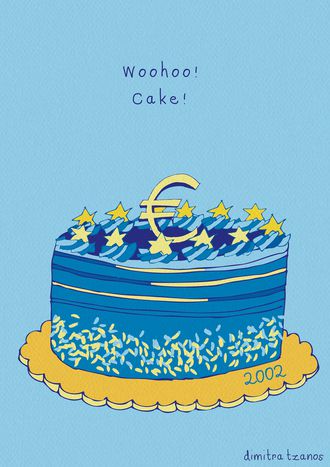
Question of the week: getting through the euro-crisis - united or apart?
Published on
The euro has drifted off course and there is no land in sight. How will we emerge from the crisis: united or everyone out for themselves? We ask who rules Europe: one united superstate, or nations ruled by self-interest? Four young Europeans start the debate: join in at cafebabel.co.uk/europaplus
'I believe that the loss of our mutual currency is unthinkable. It is fundamental to the European union and, whether we like it or not, an essential aspect of our everyday life, at least for the seventeen countries which are part of the eurozone. I also think that this ‘crisis’ of the euro (if the money is being devalued) is overestimated by the european media. We can't stop imagining catastrophes by the weak light of those we call the 'declinologues' (to quote Nicolas Baverez), that's to say the people who pose, through their ideas, the question of devaluation. Finally, I think we will have to be united in leaving this crisis which isn’t one. If the euro is a symbol it’s a symbol of unicity and cooperation. It’s up to the Franco-German couple who have given themselves a month to ‘save the euro' to demonstrate that. But I’ll say it again: I don’t think that the euro is in a critical situation. It will survive whatever happens.'
Matthieu Amare, cafebabel.com French editor
'I'm afraid that we'll emerge from the crisis distrustful, thinking about our own business. I think that member states are missing motivation to fight for the common interest. Some people say that the EU was founded as the economical union and should have never got further. But they forget that the economics were not the aim but the tool. And the aim was to live in an united and peaceful Europe. What an irony that we're forgetting about this idea whereas it's France and Germany who tend to shape the EU's politics towards the crisis.'
Aleksandra Sygiel, cafebabel.com Polish editor
'I’m no economist. I don’t pretend to understand what’s happening with the euro at the moment, nor why different European states and politicians act the way they do. I think though that even if there are rifts between countries at the moment because of the economy, these are just short-term. We need to see the bigger picture. Europe is something much older and much bigger than the eurozone and no matter how serious they seem now, the problems attached to the eurozone aren’t going to make it go under.
As for decision making, it’s an elite who are making those decisions: both a political elite (probably encouraged by a certain elite in the banking world as well) and the select group of countries (notably France and Germany) who have the economic and political clout in the EU. Surely that’s not what a union should be about?'
Annie Rutherford, Scotland
'Europe is not a superstate and can never be; we forget that it is too early in its construction as a unity to be able to achieve that. We will emerge united because reason will prevail and sacrifices have to be made, if anyone even believes in this project we are all a part of. Let's not be dim: this could have been predicted as a worse case scenario when the single currency was introduced, the risks were there for the taking. I'd like to offer my solidarity to the Greek people who have found themselves on the end of that line and are paying in all kinds of different ways; the latest I heard they have no more free access to healthcare?'
Hatti Zwanger, Holland
Image: (cc) DimitraTzanos/ Flickr



